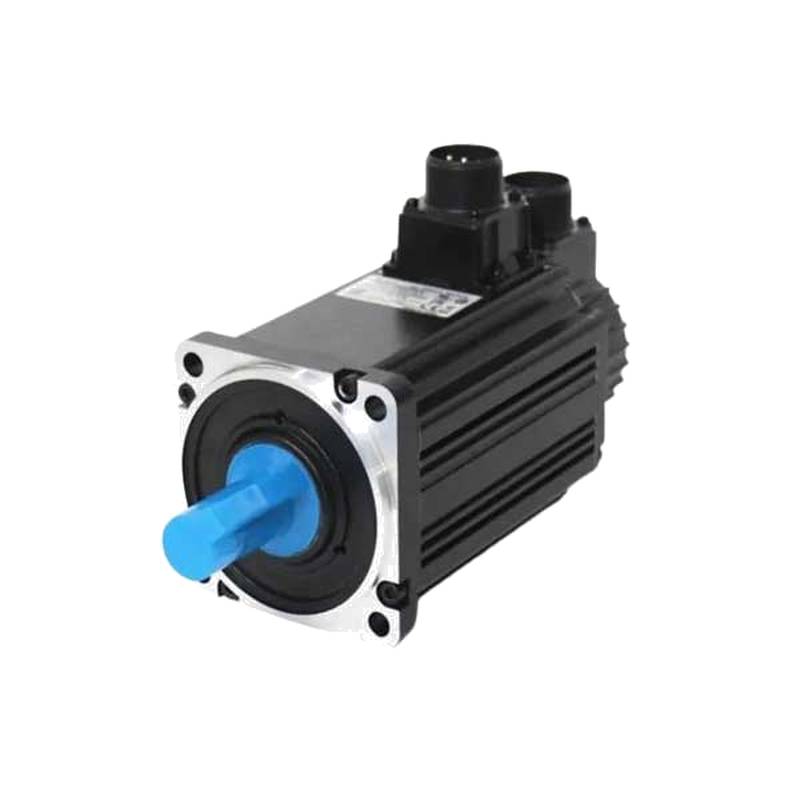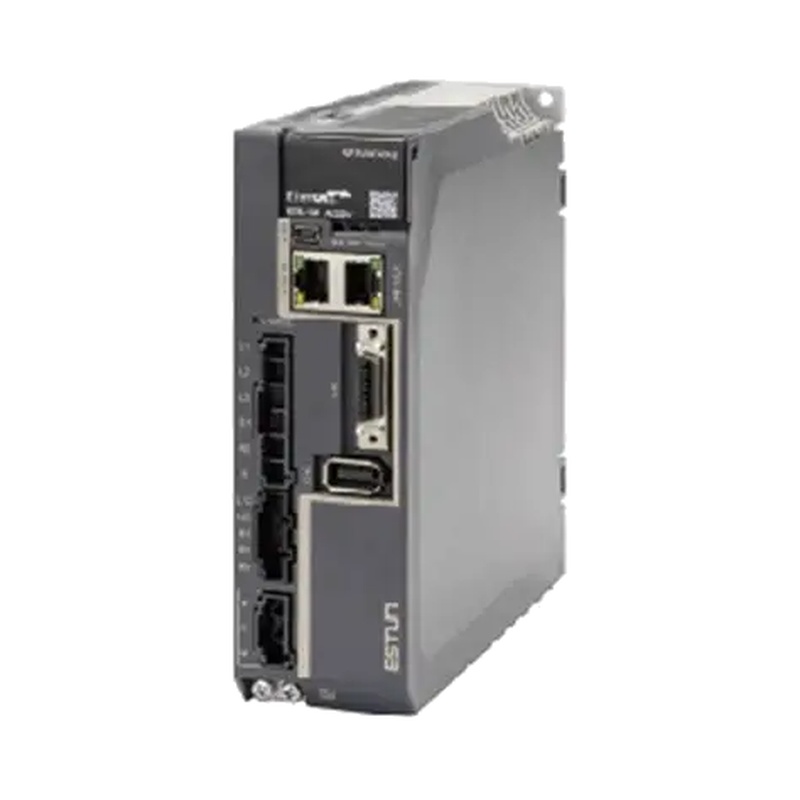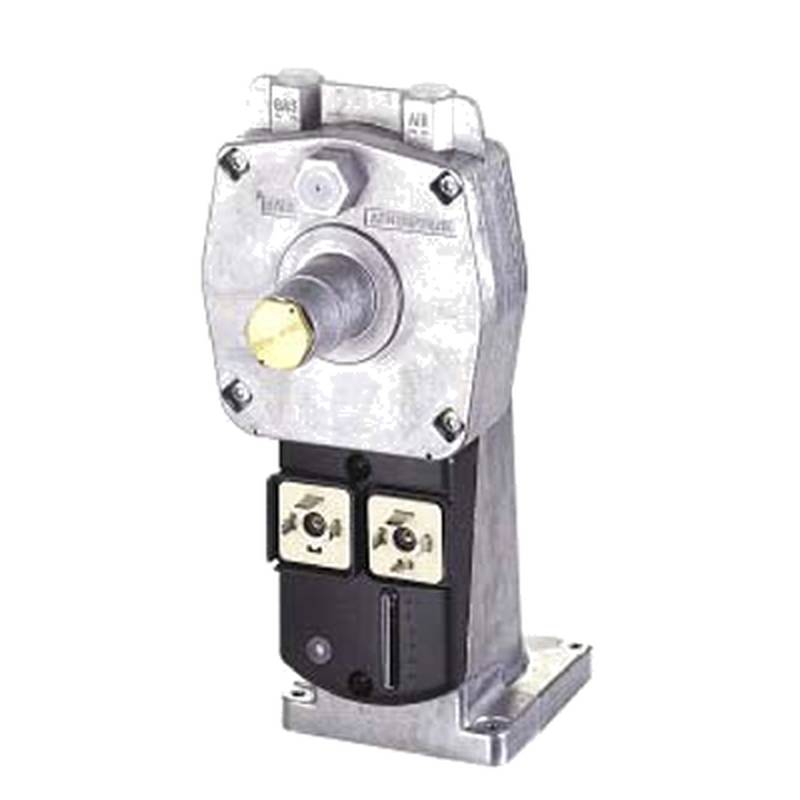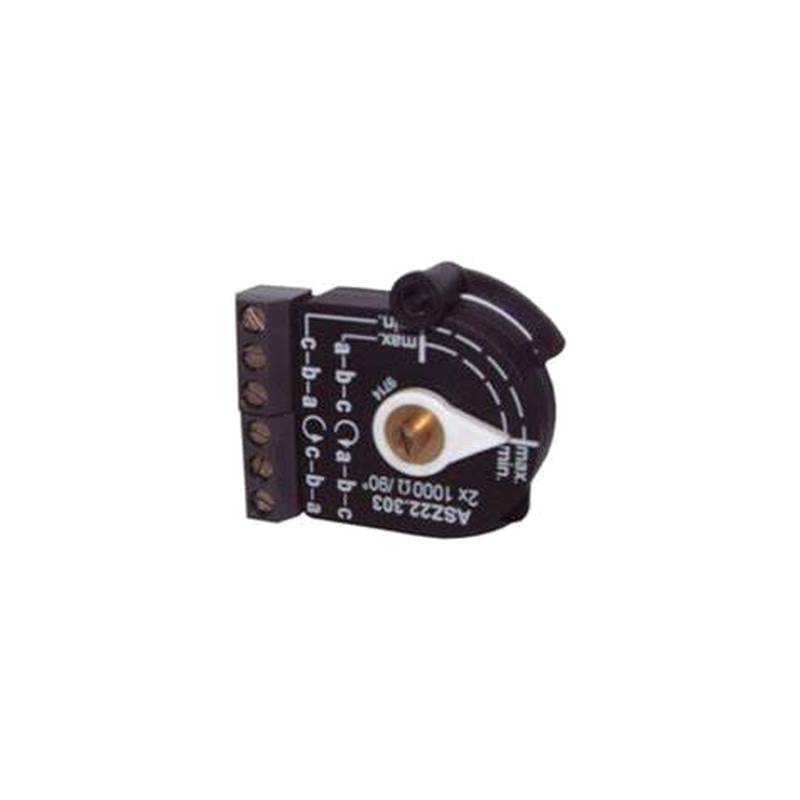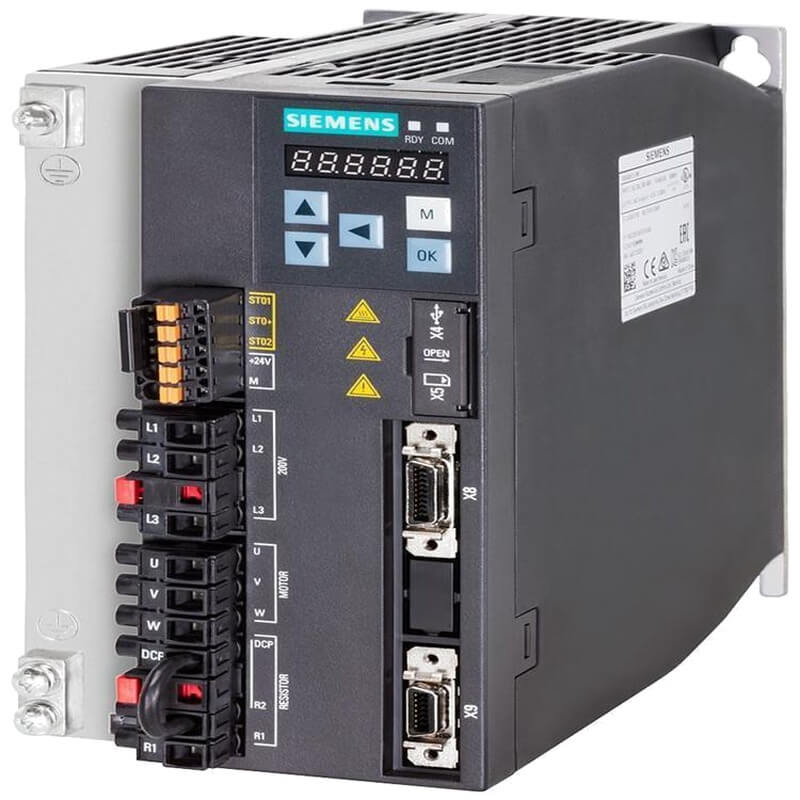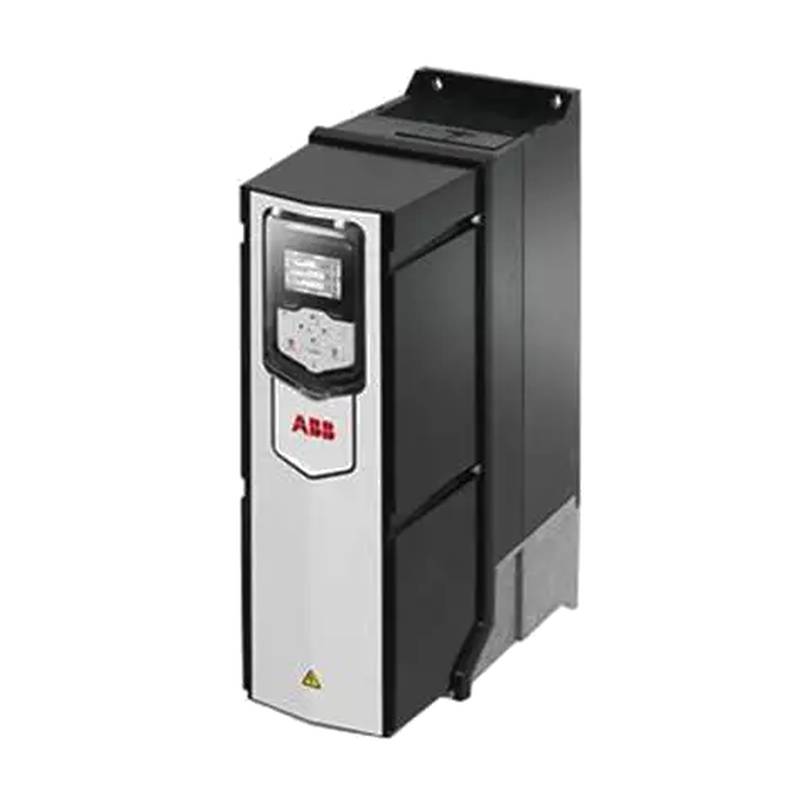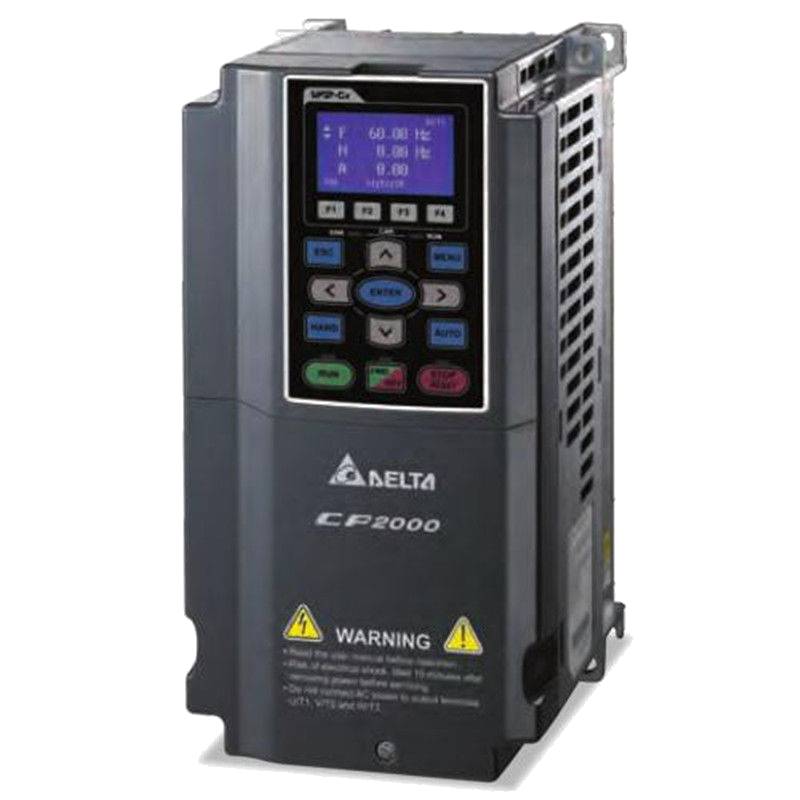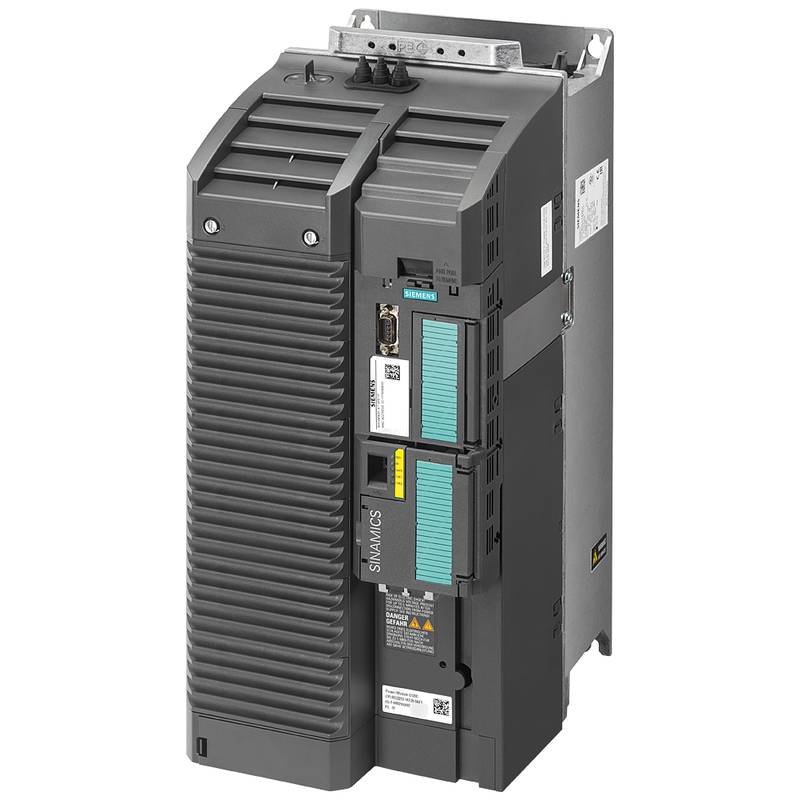
The Delta ECM-B3M-CM0602RS1 is a medium inertia servo motor engineered for high-precision industrial automation, offering enhanced performance and a compact design. This motor is a key component of Delta's ASDA-B3 servo system, designed to boost machining efficiency through optimized performance, stable operation, and versatile applications. Its advanced features, including a 24-bit incremental optical encoder, deliver superior accuracy and responsiveness. The ECM-B3M-CM0602RS1 is distinguished by its robust torque capabilities, high-speed operation up to 6000 RPM, and a significant short-term torque increase of 350%, enabling faster acceleration and deceleration for reduced cycle times. Furthermore, its compatibility with previous ECMA motor frame sizes simplifies upgrade paths, making it a practical choice for modernizing existing systems.
Product Specifications
| Specification | Value |
| :------------------- | :----------------------------------------------------------------- |
| Series | B3 Servo Drive |
| Motor Type | ECM-B3M Medium Inertia |
| Rated Output Power | 200 W |
| Rated Torque | 0.64 Nm |
| Maximum Speed | 6000 RPM |
| Encoder Type | 24-bit incremental optical encoder (16,777,216 pulses/revolution) |
| Frame Size | 60 x 60 mm |
| Shaft Diameter | 14 mm h6 |
| Rotor Inertia | 0.177 x 10⁻⁴ kg·m² |
| Short-term Torque Increase | 350% |
| Voltage | 220 VAC (3-Phase) |
| Insulation Class | Class A (UL), Class B (CE) |
| IP Rating | IP67 (with waterproof connections and oil seal) |
| Operating Temperature| -20°C to 60°C |
Core Features & Market Positioning
The Delta ECM-B3M-CM0602RS1 servo motor is positioned as a high-performance, technologically advanced solution for demanding automation tasks. Its market differentiation stems from a combination of increased performance metrics and a more compact footprint compared to previous generations. The 24-bit optical encoder offers a significant leap in resolution over older 17-bit encoders, providing unparalleled precision for applications requiring intricate motion control. The enhanced short-term torque boost of 350% allows for rapid dynamic responses, crucial for high-cycle automation where every millisecond counts. This motor is designed to work seamlessly with the ASDA-B3 servo drive, creating an integrated system that promises optimized efficiency and cost savings through reduced cycle times. Its ability to maintain performance while being more compact than its predecessors also addresses space constraints in modern machine designs.
Key Application Scenarios
The Delta ECM-B3M-CM0602RS1 servo motor is ideally suited for a wide array of industrial applications that demand high precision, speed, and reliability. Its medium inertia characteristics make it versatile for tasks involving moderate acceleration and deceleration profiles. Common applications include:
CNC Machining: Providing precise control over tool paths and spindle speeds for intricate component manufacturing. Robotics: Enabling accurate and repeatable movements for pick-and-place operations, assembly, and material handling robots. Packaging Machinery: Ensuring synchronized and high-speed operation for filling, sealing, and labeling processes. Automated Assembly Lines: Driving components that require precise positioning and speed control for efficient production. Printing and Labeling Equipment: Facilitating accurate registration and high-speed material transport. Material Handling Systems: Powering conveyors, AGVs, and automated storage and retrieval systems where controlled motion is paramount.
The motor's high encoder resolution and torque capabilities are particularly beneficial in applications where fine adjustments and rapid response to changing commands are critical for maintaining product quality and production throughput.
Practical System Integration Guidance
Integrating the Delta ECM-B3M-CM0602RS1 servo motor into an industrial system involves careful consideration of wiring, parameter configuration, and compatibility with the ASDA-B3 servo drive. The motor is designed for straightforward connection with the ASDA-B3 series drives, often utilizing high-speed communication protocols like EtherCAT, which can significantly reduce wiring complexity and inspection time, especially in multi-axis setups.
For electrical connections, ensure proper grounding and adherence to the drive's manual for power and signal wiring. The ASDA-B3 drive supports various control modes, including pulse train and analog voltage control, allowing flexibility in how the servo motor is commanded. Parameter settings within the ASDA-B3 drive are crucial for optimizing motor performance. This includes configuring motor data, control gains, and operating modes to match the specific application requirements. Delta provides comprehensive documentation and software tools to assist with the commissioning process, including auto-tuning functions that help calibrate the system for optimal response.
When replacing older Delta motors, such as the ECMA series, the ECM-B3M series maintains compatible flange sizes and shaft diameters, facilitating a direct mechanical swap with minimal retrofitting. However, it is always recommended to consult the Delta documentation for specific wiring diagrams and parameter guidelines to ensure a successful and safe integration.
Operation and Risk Mitigation
Safe and efficient operation of the Delta ECM-B3M-CM0602RS1 servo motor hinges on understanding its operational parameters and implementing appropriate risk mitigation strategies. The motor's operating temperature range is -20°C to 60°C, with performance derating required for temperatures exceeding 40°C. Ensure adequate ventilation and cooling for both the motor and the servo drive to prevent overheating.
The ASDA-B3 drive incorporates various protection features, such as over-current, over-voltage, and over-temperature protection, which help mitigate common faults. However, users should be aware of potential issues like vibration, which has a specified level of V15, and abnormal acoustic patterns that could indicate a developing fault. Implementing a predictive maintenance strategy, potentially using acoustic analysis as explored in Industry 5.0 initiatives, can help identify subtle anomalies before they lead to critical failures.
For applications where the motor might be subjected to external forces when unpowered, the built-in brake option (if specified) is designed for holding position, not for dynamic braking or deceleration. Always ensure that safety interlocks and emergency stop procedures are correctly implemented in the overall machine control system to prevent hazards during operation or in the event of a malfunction.
Scalability & Long-Term Value
The Delta ECM-B3M-CM0602RS1 servo motor offers significant scalability and long-term value, primarily through its integration within Delta's broader automation ecosystem and its backward compatibility features. The ASDA-B3 series is designed to enhance machining efficiency and is compatible with Delta's existing platforms, including earlier ASDA-A2 and ASDA-A3 series models, simplifying upgrades and ensuring a degree of investment protection.
The adoption of high-speed communication protocols like EtherCAT enhances system scalability by allowing for the connection of numerous axes and remote I/O modules with simplified wiring, supporting complex multi-axis machine designs. Furthermore, Delta's continuous development in areas like IIoT and Industry 5.0 suggests future integration possibilities for enhanced monitoring, diagnostics, and predictive maintenance, aligning with the trend towards smarter manufacturing. The motor's robust construction and Delta's reputation for reliable industrial automation components contribute to its long-term value, reducing the total cost of ownership through reduced downtime and maintenance requirements.
Frequently Asked Questions
1. What are the key advantages of the Delta ECM-B3M-CM0602RS1 servo motor?
This servo motor offers superior positional accuracy due to its 24-bit encoder. It provides a high short-term torque boost of 350%. Its compact design reduces machine footprint and weight. It is compatible with ASDA-B3 servo drives for optimized performance. The motor also boasts enhanced speed capabilities up to 6000 RPM.
2. How does the 24-bit encoder in the ECM-B3M-CM0602RS1 improve performance?
The 24-bit encoder provides an exceptional resolution of 16,777,216 pulses per revolution. This translates to incredibly fine positional control and smooth motion. It significantly enhances accuracy in demanding applications like precision machining. This high resolution surpasses older 17-bit encoders significantly.
3. What is the rated torque and maximum speed of this motor?
The Delta ECM-B3M-CM0602RS1 has a rated torque of 0.64 Nm. Its nominal speed range is up to 3000 RPM. However, it can reach a maximum speed of 6000 RPM in the field-weakening area. This wider speed range allows for greater application flexibility.
4. What are the primary applications for the Delta ECM-B3M-CM0602RS1?
This motor is ideal for precision automation tasks. Applications include CNC machines, robotics, and automated assembly lines. It is also suitable for packaging and material handling equipment. Anywhere precise motion control is critical, this motor excels.
5. How does the ECM-B3M-CM0602RS1 compare to older Delta servo motors?
It offers higher performance metrics like increased speed and torque boost. The 24-bit encoder is a major upgrade in precision. It is also more compact than previous generations. Frame sizes are maintained for easier upgrades from ECMA motors.
6. What is the IP rating of this servo motor?
The motor features an IP67 rating. This ensures protection against dust ingress and water submersion. It requires waterproof connections and an oil seal for this rating. This makes it suitable for harsh industrial environments.
7. Can this motor be used with older Delta servo drives?
The ECM-B3M-CM0602RS1 is specifically designed for the ASDA-B3 servo drive. While Delta's ASDA-B3 series is compatible with A2 and A3 series drives, direct motor compatibility depends on specific drive models. Always verify compatibility with your existing drive system.
8. What are the benefits of the medium inertia design?
Medium inertia motors offer a balance between responsiveness and stability. They are suitable for applications requiring moderate acceleration and deceleration. This makes them versatile for a wide range of automation tasks. They are less prone to vibration than high-inertia options.
9. How is system integration performed with the ASDA-B3 drive?
Integration involves connecting the motor to the ASDA-B3 drive using appropriate cabling. Parameter configuration within the drive is essential. Auto-tuning functions assist in optimizing performance. Protocols like EtherCAT simplify multi-axis system wiring.
10. Are there any specific safety considerations for this motor?
Ensure proper installation and wiring according to Delta's manuals. Always implement safety interlocks and emergency stop systems. Be mindful of operating temperature limits and ensure adequate cooling. The brake is for holding, not dynamic stopping.














